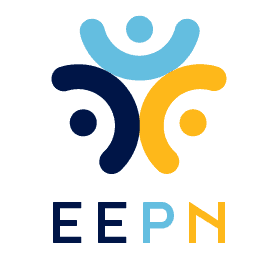EEPN Research 2022: A Powerful Whole School Approach for Teachers and School Leaders

Table of Contents
The European Education Policy Network on Teachers and School Leaders (EEPN) has published its latest research, focusing on a sustainable whole school approach for quality and inclusive education. As in previous years, researchers have drawn inspiration from several Parents International projects, reinforcing the role of parent-teacher collaboration in enhancing educational outcomes. We are proud to be featured in this research once again.
In its third and final year, EEPN’s research delves into how teachers and school leaders can adopt a sustainable whole school approach. This year’s study is particularly relevant given the evolving expectations from education systems, with a strong focus on active citizenship, social-emotional learning, and collaborative engagement between schools and families.
Parent’R’Us: Strengthening School-Parent Collaboration in the context of the whole school approach
One of the featured programs is Parent’R’Us, which encourages parents to mentor not only their peers but also teachers. The research highlights that participatory approaches and shared ethos play a crucial role in strengthening relationships between teachers and parents. The study recognizes the program as an effective method to promote collaboration, emphasizing that such interactions should be bidirectional, rather than solely parent-to-teacher.
The research also suggests that schools should proactively organize stakeholder meetings, ensuring the engagement of teachers, parents, and students in decision-making. Recognizing the value of non-academic knowledge, including the insights parents bring to education, is essential for successfully implementing a whole school approach. The findings encourage governments to establish policies that facilitate parental participation in schools and foster a collaborative ethos between educators and families.
Education for Sustainable Development (ESD) and the Role of Educators
Another major theme of the EEPN research is education for sustainable development (ESD), which stresses the importance of equal partnerships between teachers and parents to enhance learning outcomes. According to the findings, such collaborations require educators to broaden their perspectives, embracing cultural diversity and inclusivity as a foundation for sustainability. The research also acknowledges that whole school approaches are key enablers of improved learning experiences, particularly for students from vulnerable backgrounds.
The research highlights that education policies must address crucial factors such as accessibility, autonomy, and financial sustainability to effectively implement whole school approaches. Furthermore, advocacy is emphasized as a necessary tool to ensure that ESD programs are successfully integrated into school policies, overcoming legislative and systemic barriers.
ParENTrepreneurs: Building 21st-Century Skills in Schools
Another program that caught the attention of EEPN researchers is ParENTrepreneurs. This initiative focuses on developing essential 21st-century skills such as resilience, critical thinking, and active participation. Interestingly, the research reveals that training programs for teachers and parents can be nearly identical, reinforcing the idea that lifelong learning and adaptability are essential for both educators and caregivers.
By examining the implementation of ParENTrepreneurs across diverse European education systems, the study concludes that its competence framework remains relevant regardless of regional differences. This underscores the potential for European-wide approaches in addressing the evolving educational landscape and ensuring that teachers and parents are equipped to support students effectively.
The Role of Family-School Engagement in Educational Reform
The EEPN research also acknowledges the significance of the Brookings Playbook on Family-School Engagement. This resource highlights the transformative role of collaboration between parents, teachers, and school leaders in enhancing education systems. It provides evidence-based strategies and hands-on tools that schools can adopt to support engagement, aiming to address key educational goals such as improving student attendance and academic performance, redefining the purpose of education for both students and society, and ensuring that schools become more inclusive and student-centered.
Additional projects such as Dragonfly and COVIDEA are also discussed, showcasing the importance of creative learning and digital education in shaping the future of schooling. Teachers require access to quality resources and training to effectively introduce ecological and digital-age competencies into their teaching practices. EEPN research emphasizes that fostering sustainable thinking and social-emotional learning should take precedence over merely developing digital technical skills.
Download the Full Research Papers
For a deeper understanding of these transformative educational insights, you can download all four EEPN research papers here: EEPN Research Year Three. We encourage you to share them with educators and school leaders in your community to drive meaningful educational reform.
More from Parents International
Parent Initiatives Support Teachers and School Leaders
Student Achievement: the Impact of School, Family, and Community Connections
Parental Engagement in Happy Schools
Interested in adopting a whole school approach in your school? Check out what we can do for you here! IPA Training Offer